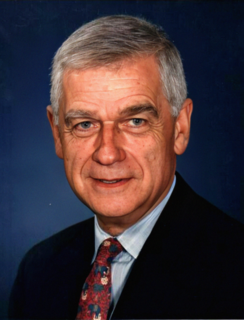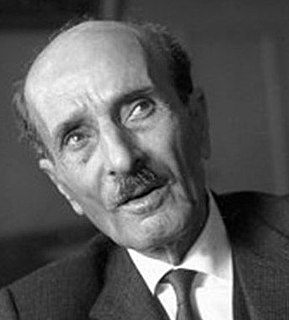A Quote by Thomas Paine
But there are times when men have serious thoughts, and it is at such times, when they begin to think, that they begin to doubt the truth of the Christian religion; and well they may, for it is too fanciful and too full of conjecture, inconsistency, improbability and irrationality, to afford consolation to the thoughtful man. His reason revolts against his creed. He sees that none of its articles are proved, or can be proved.
Related Quotes
I have no religion, and at times I wish all religions at the bottom of the sea. He is a weak ruler who needs religion to uphold his government; it is as if he would catch his people in a trap. My people are going to learn the principles of democracy, the dictates of truth and the teachings of science. Superstition must go. Let them worship as they will; every man can follow his own conscience, provided it does not interfere with sane reason or bid him against the liberty of his fellow-men.
Alas! What is man? Whether he be deprived of that light which is from on high, of whether he discard it, a frail and trembling creature; standing on time, that bleak and narrow isthmus between two eternities, he sees nothing but impenetrable darkness on the one hand, and doubt, distrust, and conjecture, still more perplexing, on the other. Most gladly would he take an observation, as to whence he has come, or whither he is going; alas, he has not the means: his telescope is too dim, his compass too wavering, his plummet too short.
What we have to understand that we have to believe into things which can be proved. Now the time has come that Divine itself has to be proved. That God Almighty has to be proved. That Christ as a son of God has to be proved, that His birth as immaculate conception has to be proved. Not by argument, not by reasoning, nor by blind faith but by actualization on your central nervous system.
We cannot begin with complete doubt. We must begin with all the prejudices which we actually have when we enter upon the study ofphilosophy. These prejudices are not to be dispelled by a maxim, for they are things which it does not occur to us can be questioned. A person may, it is true, in the course of his studies, find reason to doubt what he began by believing; but in that case he doubts because he has a positive reason for it, and not on account of the Cartesian maxim. Let us not pretend to doubt in philosophy what we do not doubt in our hearts.
This perversion of the truth, familiar to the artist though it was, always unnerved him afresh and proved too much for him. What was a consequence of the premature ending of his fast was here presented as the cause of it! To fight against this lack of understanding, against a whole world of nonunderstanding, was impossible.
He's a man who... well, one of the great things about Shakespeare is that his characters are inconsistent, and that's something I think makes him a writer above most writers because inconsistency is what we, as people, are full of. We maybe don't see it in ourselves too often, but we are inconsistent.
The man who has a certain religious belief and fears to discuss it, lest it may be proved wrong, is not loyal to his belief, he has but a coward's faithfulness to his prejudices. If he were a lover of truth, he would be willing at any moment to surrender his belief for a higher, better, and truer faith.
First, whenever a man talks loudly against religion, always suspect that it is not his reason, but his passions, which have got the better of his creed. A bad life and a good belief are disagreeable and troublesome neighbors, and where they separate, depend upon it, 'Tis for no other cause but quietness sake.
As Our Predecessors have many times repeated, let no man think that he may for any reason whatsoever join the Masonic sect, if he values his Catholic name and his eternal salvation as he ought to value them. Let no one be deceived by a pretense of honesty. It may seem to some that Freemasons demand nothing that is openly contrary to religion and morality; but, as the whole principle and object of the sect lies in what is vicious and criminal, to join with these men or in any way to help them cannot be lawful
In this modern world where activity is stressed almost to the point of mania, quietness as a childhood need is too often overlooked. Yet a child's need for quietness is the same today as it has always been--it may even be greater--for quietness is an essential part of all awareness. In quiet times and sleepy times a child can dwell in thoughts of his own, and in songs and stories of his own.





































